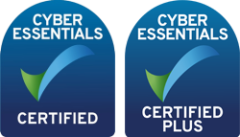Every information source counts in the case of an emergency. It is crucial to get the most comprehensive information overview in order to make informed decisions. However, are all sources taken equally into account? One of the undervalued tools to gather information is to do so via RSS feeds.
RSS in a nutshell
RSS stands for Rich Site Summary or Really Simple Syndication. Or simply put, RSS is a standardised, computer-readable format to automatically read updates of websites. It was enormously popular a decade ago when every website had an RSS feed. However, in recent years there have been multiple stipulations about the “death of RSS”. This came about as social media became the main information source for many users. Despite the undoubted value of social media, it is important to receive varied information. Thus, RSS can be seen as an extension of open sources.

What is the added value of RSS feeds?
RSS feeds can cover a website, particular topic, news sites or blogs. For instance, blogs are particularly valuable for personal opinions and real time updates where social media is restricted or unpopular. If you are in need of verified information, such as news on the latest measures or restrictions of COVID, you can select specific trustworthy parties such as RIVM or EU Commission RSS feeds to avoid fake news. So, in order to create a full picture, you should not ignore RSS.
If you are not persuaded yet, let us give you a few more examples about the value of RSS:
- Some social media platforms are only available through RSS, such as Reddit or Dumpert
- You can easily get updates from local websites, associations or events pages via RSS.
Reddit preview in PublicSonar
- If you are interested in monitoring the news updates around a current topic, you can create an RSS feed for a Google news search. So instead of refreshing every time, you will automatically receive all updates.
RSS preview in PublicSonar
How to cut through the noise of all this new information?
Now that we have surely established the value of RSS, it is important to think about how to avoid information overload. Sifting through thousands of messages to find the ones most relevant to you can be a tedious process. This can be easily done with PublicSonar. Identically to filtering social media you can extract information based on topics of interest, events, location, etc. If you are curious to know more, don’t hesitate to drop us a line at info@publicsonar.com or reach us through our contact page.








